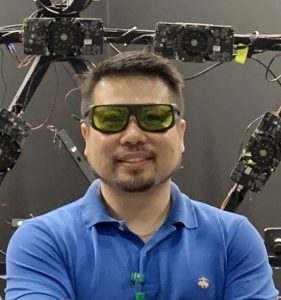
CS faculty candidate Bo Dong, Visiting Researcher, Department of Computer Science, Princeton University, will present a virtual lecture on Wednesday, March 16, 2022, at 3:00 p.m. In his talk, “Bioinspired Sensing and Processing,” Dong will introduce his research, which encompasses the development of imaging systems and computational algorithms to endow the system with bioplausible homeostasis and apply it to real-world applications.
Lecture Title: Bioinspired Sensing and Processing
Abstract: Dr. Dong’s research lies at the intersection of machine learning, computer vision, computer graphics, and neuroscience, and it seeks solutions to enhance the adaptation capability and computational & energy efficiency of computational imaging systems. In particular, my research encompasses the development of imaging systems and computational algorithms to endow the system with bioplausible homeostasis and apply it to real-world applications. The endowed homeostasis capability can decouple physiology from immediate external conditions and thereby significantly extend the range of available application scenarios. This talk leverages dragonfly eyes factsbinocular hyperspectral vision, sensitivity to polarized light, and extremely sensitive to motion— as a storyline to introduce one thread of my research, which is related to multimodal sensing. In particular, I will introduce the first depth-aware segmentation network that considers both RGB and depth for mirror segmentation. Besides, a novel learning-based glass segmentation network that leverages both trichromatic intensities (RGB) and trichromatic linear polarization cues from a single photograph will be discussed. Similar to dragonfly eyes, bioinspired event-based cameras are extremely sensitive to motion. We successfully leveraged event-based cameras to enhance single object tracking performance, especially in degraded conditions (e.g., scenes with high dynamic range, low light, and fast-motion objects). Related research efforts will be introduced. On the bioplausible processing side, my research focuses on developing bioinspired algorithms for spiking neuron networks (SNNs). Specifically, we bridge a gap between biological research and machine learning by introducing a bioinspired dynamic threshold scheme to SNNs for offering them neural homeostasis. I will discuss one related research project at a high level, as we are still working on it.
Bio: Bo Dong is a visiting researcher in the Department of Computer Science at Princeton University. He is also a volunteer research advisor in the School of Computer Science and Technology at the Dalian University of Technology, China. He is leading multiple research efforts related to bioinspired sensing and processing. The overarching vision of his research is to leverage bioplausible neuroscientific observations and theories to bring the tantalizing promise of human-like homeostatic computational imaging systems, which can spontaneously maintain a relatively constant internal environment. Dr. Dong received a BS in Software Engineering from Northeastern University (China) and MS in Computer Science from Texas A&M University-Corpus Christi. He received a Ph.D. in Computer Science from the College of William and Mary in 2015.